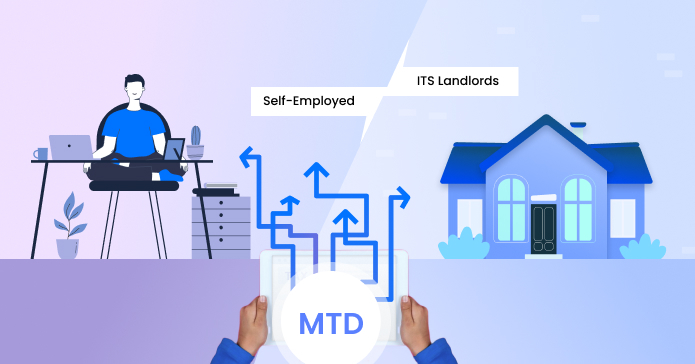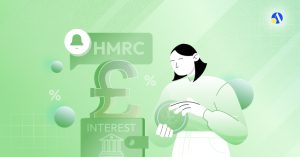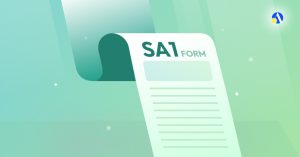HMRC is set to change the rules of tax returns
HMRC is changing how Self-Employed individuals and Landlords file their tax returns—big changes are coming, and you need to be ready. Making Tax Digital (MTD) is transforming the tax system, and it’s essential to understand what this means for you. Don’t wait—here’s what you need to know now.
This blog will cover how MTD for Income Tax Self Assessment (MTD for ITSA) works, who it affects, and how to prepare well before the deadline in 2026. By the end, you'll understand the steps necessary to get ready and how Debitam can assist you with your Self-Assessment and property tax needs.
What Is ‘Making Tax Digital’?
Making Tax Digital (MTD) is HMRC’s plan to modernise the UK tax system by moving it online. Instead of relying on annual paper-based tax returns, taxpayers will have to keep digital records and submit updates quarterly through MTD-compatible software.
Think of it as a streamlined, online approach to managing your taxes, aimed at reducing errors and providing more accurate, real-time insights into your tax position.
Sound daunting? It doesn’t have to be! Here’s everything you need to know about the latest changes coming under MTD for ITSA.
The 4th Phase of MTD: What’s Changing for Landlords & Self-Employed Individuals
MTD for ITSA is the fourth phase of HMRC’s MTD rollout following MTD for VAT last year. Its goal? To incorporate landlords and those filing Self Assessment tax returns into the digital system.
Starting from 6 April 2026, landlords and self-employed individuals with a total gross income over £50,000 will need to transition to the new system. From 6 April 2027, the threshold will expand to include those earning over £30,000. And, eventually, those earning over £20,000 will make the switch by 2028.
Key points to note:
- Landlords and self-employed taxpayers earning more than £50,000 annually will need to make quarterly submissions starting from 2026. That means four times more admin work for self-employed individuals and landlords from 2026. Landlords and self-employed taxpayers will need to submit quarterly income/expense summaries digitally, followed by a final annual declaration. For more information about what documents to keep for a self-assessment tax return, read here
- This affects gross income, not profits, so even those with modest post-expense earnings may need to comply.
- Over 1.7 million taxpayers are expected to join MTD for ITSA across its first two phases.
If you’re wondering how this will affect your day-to-day operations, keep reading!
What Is ‘Qualifying Income’ for MTD for ITSA?
Qualifying income refers to the total annual gross income from your self-employment earnings and property rental income. This includes all income before accounting for any expenses or tax reliefs.
For example, if you earn rental income from a property or if you're running a small business as a sole trader, that income will count toward the MTD threshold.
What Does MTD for VAT Mean?
Making Tax Digital began with VAT. Since April 2019, VAT-registered businesses earning over £85,000 a year have been required to keep digital records and submit VAT returns using MTD-compatible software.
Even non-VAT-registered businesses were included in the mandate starting from April 2022, ensuring all businesses adopt the digital system for VAT.
This same approach is now being extended to income tax with MTD for ITSA.
Can I Submit VAT Returns Without MTD?
If your business meets the criteria for MTD, then submitting VAT returns outside of the MTD system is no longer an option. You must use MTD-compliant software, which ensures that your digital records and returns can be processed in the correct format.
What Is the MTD for Income Tax Pilot?
The MTD for ITSA pilot is HMRC's test programme, allowing individuals to familiarise themselves with the system by opting in early. Those who participate can gain hands-on experience with digital record-keeping and quarterly updates, making the transition smoother once MTD for ITSA becomes mandatory.
Why join early? Signing up for the pilot allows you more time to work out any issues and avoid a last-minute scramble in preparing for the mandate.
Why Early Preparation Is Key
Transitioning to digital tax processes might feel overwhelming, but early preparation is the key to staying compliant without unnecessary stress. Here’s why starting now is the smartest move you can make:
- Learn the Software
MTD-compatible software is essential, and learning how it works takes time. Starting early will give you room to adjust. - Avoid Penalties
You’ll have a year-long grace period when MTD goes live, but starting early helps you identify and address potential mistakes before penalties apply. - Spread Out the Workload
Overhauling your record-keeping processes is less daunting when done gradually instead of all at once.
How Can Debitam Help?
With over 1,000 landlord clients and years of experience in handling Self Assessment tax returns, Debitam is uniquely positioned to assist landlords and self-employed individuals in preparing for MTD for ITSA.
Here’s how we can help you stay ahead of the curve:
- Expert Guidance on keeping digital records and transitioning to MTD-friendly workflows.
- Self Assessment Support for seamless and accurate submissions.
- Property Tax Expertise specifically tailored for landlords.
- MTD-Compatible Tools to simplify quarterly reporting and ensure compliance.
Don’t wait until the deadline looms. Call us today, and let's chat about how we can make MTD work for you.
Sign up early and prepare today!
Final Thoughts
MTD for ITSA (Making Tax Digital for Income Tax Self Assessment) is set to transform how landlords and self-employed individuals manage their taxes. While the changes may seem overwhelming at first, preparing early can save you time, money, and hassle when the system becomes mandatory.
By switching to MTD-compatible software and digitising your records now, you’ll stay ahead of the curve and ensure a smooth transition.
Looking for expert guidance on Making Tax Digital? Debitam’s experienced team is here to help simplify the process and get you fully prepared. Contact us today or sign up for our services to make MTD easy and stress-free!














